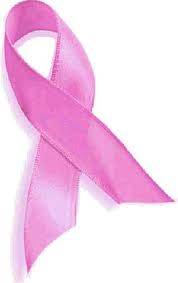 A clinical trial to see if a gel containing an active form of tamoxifen, an anti-estrogen therapy, can provide the drug's benefits with decreased risk of adverse health effects compared to those who take the oral tamoxifen is being conducted at Northwestern Medicine.
A clinical trial to see if a gel containing an active form of tamoxifen, an anti-estrogen therapy, can provide the drug's benefits with decreased risk of adverse health effects compared to those who take the oral tamoxifen is being conducted at Northwestern Medicine.
The new study drug is being tested on participants recently diagnosed with the earliest form of non-invasive breast cancer. Women who are treated for this kind of cancer (called ductal carcinoma in situ or DCIS) are usually advised to take oral tamoxifen for five years if their DCIS is hormone sensitive. In this research study, half the women receive the study gel and half the women receive the oral tamoxifen.
Tamoxifen, when taken as a pill for five years, reduces the risk of cancer recurrence in the same spot by a third and prevents the occurrence of half of new breast cancers. The therapy, however, has an increased risk of blood clots, uterine cancer and hot flashes. As a result, many women decline the treatment.
“The gel is a way to minimize exposure to the rest of the body and concentrate the drug in the breast where it is needed," said principal investigator Seema Khan, M.D., co-leader of the breast cancer program at the Robert H. Lurie Comprehensive Cancer Center of Northwestern University and a surgical oncologist at Northwestern Memorial Hospital. "Delivery of the drug through the skin of the breast means there will be very little drug circulating through the bloodstream and the body. This should reduce the possibility of blood clots."
Khan compared it to the current practice of delivering estrogen via a skin patch to avoid the risk of blood clots. And because the circulating levels of the topical drug are very low, the gel should be unlikely to cause other side effects such as hot flashes and the increased risk of uterine cancer.
Another problem with oral tamoxifen is that it does not help all women who take it, because it needs to be activated in the liver by specific enzymes, and about a third of women lack these enzymes. These women may not receive full benefits from the pill, and the gel may be more effective for these women because the active form of the topical drug is being delivered directly into the breast tissue, noted Khan.
The participants in the trial must have a recent diagnosis of DCIS. In this form of breast cancer, abnormal cells multiply and form a growth within a milk duct. This form of cancer is noninvasive, meaning it hasn't spread from the milk duct to other parts of the breast.
Because of increased screening with mammograms, diagnoses of this early breast cancer have increased dramatically in recent years. While the cancer isn't life threatening when caught early, it requires treatment to prevent the condition from becoming invasive. Most women with this type of breast cancer are effectively treated with breast-conserving surgery and radiation.
The study is funded by the National Cancer Institute, and the study design has been approved by the FDA. Trial sites are at Northwestern University and Washington University. Participants will be randomized to take the tamoxifen pill or the active form of tamoxifen topical gel for six weeks prior to scheduled routine surgery. Researchers will measure the tumor growth rate to see if the reduction in growth rate is equally good in women who receive the gel and those who receive the pill.
Participants are currently being enrolled in the trial. For more information, visit http://www.cancer.northwestern.edu/toptam or call Katherine Page at k-page@northwestern.edu (312) 695-1408.
By Marla Paul

Comments